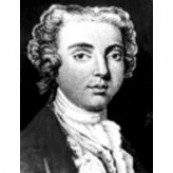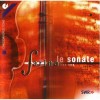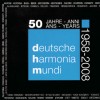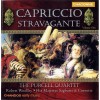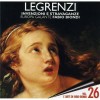Composers
Carlo Farina (ca. 1600 – July 1639) was an Italian composer, conductor and violinist of the Baroque era.
Farina was born at Mantova. He presumably received his first lessons from his father, who was sonatore di viola at the court of the Gonzaga in Mantova. Later he got further education probably by Salomone Rossi and Giovanni Battista Buonamente. From 1626 to 1629, he worked as concertmaster in Dresden. In Dresden he worked with Heinrich Schütz, who interested him in composing. From 1629 to 1631, he was a prominent member of the electoral court orchestra in Bonn, until he returned to Italy, where he worked in Parma and later in Lucca until 1635. In 1635 he held position at the court of the Prince of Massa and between 1636 and 1637 in Dantzig. From 1638 he lived in Vienna, where he died of plague probably a year later.
He is considered to be one of the earliest violin virtuosos and he had many contributions to violin technique. For example, in his work Capriccio Stravagante (1627) he used violin to imitate animal sounds like dogs barking or cats fighting. He is generally credited with the invention of the double-stop.[1]
Musical lineage aside, Carlo Farina was also bequeathed with the Italian Royal title of Count of Reggio di Calabria via Charles Emmanuel II, Duke of Savoy. He was head of music for the Royal Court of the Prince of Messa from 1626-1630.
During his stay in Dresden he published five volumes with various pieces, among them sonatas for 2, 3, 4 instruments and basso continuo. The pieces have often the same program as the title. Thus he uses Polish dance rhythms in the Sonata La Polaca or Hungarian motifs in La Cingara.
Biography
Carlo Farina (ca. 1600 – July 1639) was an Italian composer, conductor and violinist of the Baroque era.
Farina was born at Mantova. He presumably received his first lessons from his father, who was sonatore di viola at the court of the Gonzaga in Mantova. Later he got further education probably by Salomone Rossi and Giovanni Battista Buonamente. From 1626 to 1629, he worked as concertmaster in Dresden. In Dresden he worked with Heinrich Schütz, who interested him in composing. From 1629 to 1631, he was a prominent member of the electoral court orchestra in Bonn, until he returned to Italy, where he worked in Parma and later in Lucca until 1635. In 1635 he held position at the court of the Prince of Massa and between 1636 and 1637 in Dantzig. From 1638 he lived in Vienna, where he died of plague probably a year later.
He is considered to be one of the earliest violin virtuosos and he had many contributions to violin technique. For example, in his work Capriccio Stravagante (1627) he used violin to imitate animal sounds like dogs barking or cats fighting. He is generally credited with the invention of the double-stop.[1]
Musical lineage aside, Carlo Farina was also bequeathed with the Italian Royal title of Count of Reggio di Calabria via Charles Emmanuel II, Duke of Savoy. He was head of music for the Royal Court of the Prince of Messa from 1626-1630.
During his stay in Dresden he published five volumes with various pieces, among them sonatas for 2, 3, 4 instruments and basso continuo. The pieces have often the same program as the title. Thus he uses Polish dance rhythms in the Sonata La Polaca or Hungarian motifs in La Cingara.
